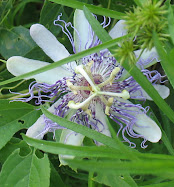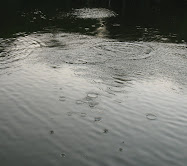 An odd coincidence: Pick any oil-rich spot on the globe, and you will find the U.S. engaged in the war on terror.
An odd coincidence: Pick any oil-rich spot on the globe, and you will find the U.S. engaged in the war on terror. In this vein, why has there been such a preponderance of al Qaeda terrorists (or, rather, a preponderance of **propaganda about **al Qaeda) surrounding the oil fields of the world over the past 7 years? The current war in Iraq is not the first U.S. war for oil. Nor is it the first war for oil, which claimed massive civilian casualties, which were then concealed by the U.S. media. This is the first war for oil, however, fought on the grounds that a foreign country posed a direct threat to the U.S. -- false grounds -- which our government intentionally deceived us into believing. This is also the first war for oil fought under the mantle of spreading freedom and democracy, even as the U.S. government funds and arms both sides in a civil war: Shiites against Sunnis and Sunnis against Shiites -- who then terrorize, torture, slaughter and commit ethnic cleansing of the very Iraqi populations we're supposedly fighting to "save" from the evil terrorists. There's a term for the type of warfare being waged by the U.S. in Iraq. It's called war crimes.
** (This PBS documentary can be seen in entirety at these links: Parts 1, 2, 3, 4, 5, 6, 7, 8, 9 and 10)
That the American people have not demanded accountability from Congress, and have largely remained silent about the atrocities of this war -- whether through complacent ignorance or sheer disbelief that our government could actually commit such atrocities -- has only served to condone this war and the policies of this administration. Our collective silence has, in effect, given Bush-Cheney carte blanche to wage other wars on terrorism - wars now being fought in countires throughout the world, with scarcely a mention in the U.S. media.
Say, Africa. Although Africa is but one stop on Dick Cheney's proposed world tour for oil, it's a good place to start, since the entire continent stands to be devoured, beginning with its name. Renamed in February 2007 (for military purposes only, mind you) Africa is now called the U.S. African Command (USAFRICOM or AFRICOM). As shown on this map, USAFRICOM was created from the existing United States European Command (USEUCOM), United States Central Command (USCENTCOM) and United States Pacific Command (USPACOM). Whatever that means. It is with some haste, then, that we inventory the African countries involved in Bush-Cheney's global war on terror.

Lost in all the flurry of Bush's February 2007 announcement of the surge in Iraq was his concurrent announcement of another surge -- this one on the continent of Africa. Having neatly accomplished 'Iraqi solutions for Iraqi problems' in their war for oil distribution in Iraq, Bush-Cheney -- poised, now, to undertake another empire -- easily won congressional approval for "African solutions to African problems." aka, U.S.AFRICOM: the U.S. African Command and its military arm ACOTA. A Department of Defense military operation, AFRICOM was created by Bush-Cheney to enhance our efforts to bring peace and security to the people of Africa. Started in October 2007, and set to be fully operational by September 30, 2008, AFRICOM is installing military commands in a total of 53 African countries -- that's all of Africa, except Egypt.
In an August 2007 congressional briefing, State and Defense Department officials emphasized to the Senate Foreign Relations Committee that AFRICOM's aim is to boost cooperation on anti-terrorism and peacekeeping activities, and programs that promote regional stability. In this same briefing, Theresa Whelan, Deputy Assistant for African affairs, echoed this sentiment -- assuring Congress that AFRICOM is focused on security, not combat. On the heels of this assurance, however, she nonetheless cautioned: " I would anticipate that there would be an increase in the amount of exercises we conduct and other military-to-military cooperation activity."
Many in Africa are understandably suspicious. Believing, perhaps, that past is prologue -- the majority of countries are protesting the presence of AFRICOM, as are many individuals around the world, including some high-profile activists, such as Danny Glover , who consider the ongoing U.S.-British militarization of Africa to be little more than a strategy toward gaining control of Africa's natural resources, most notably its oil. As one critic noted: “Peace operations” and “nation building” are what the military and the mercenaries call their activities. But just like Bush’s “healthy forests” and “clear skies” initiatives, the names mean the opposite of what they do.

The Oil Fields of Africa: Black Gold, Texas Tea
The conundrum the Bush-Cheney Administration faces in Africa is the same all the world over: how to pry the mineral rights from the rightful owners -- the African people, in this case -- while convincing Congress and the American public that our presence is purely benevolent? The events of September 11th provided an easily path: wage war on terror. This path is all the easier in Africa, where so many countries are already under the control of corrupt, suppressive dictators, whose loyalties are easily purchased.
The tactics used by Bush-Cheney are generally the same, however, no matter what the county. First, they make a case for terrorism in the country - preferably al Qaeda. Then, and not necessarily in this order, they (1) provide U.S. military assistance to fight terrorism, (2) accuse any one who disagrees with the U.S. military presence of being a terrorist insurgent, (3) incite existing cultural tensions toward divisiveness or civil war, (4) fund and arm the "goods guys" and/or the "bad guys" (aka terrorists) to physically remove -- through either ethnic cleansing and sometimes genocide -- the native populations living on the lands around the oil fields and pipelines, (5) if these populations protest, label them as terrorist insurgents.
Throughout each step of the process, U.S. oil interests are expanded and secured -- under the guise of "economic development" for the host country. When all is said and done, however, it is the U.S. who owns the controlling interests in their oil fields. Of course, by the time AFRICOM was created, Bush-Cheney had already done the legwork, having identified terrorist influences in most of the oil-rich African countries set to receive AFRICOM's military commands. And in a few countries -- such as Somalia and Sudan -- they'd already accomplished steps 1 through 5.
_____________________________
After the end of the Cold War, U.S. policy toward Africa was driven by President George H. W. Bush’s vision of a “New World Order.” .... President Bush announced in his 2006 State of the Union Address his intention to “to replace more than 75 percent of our oil imports from the Middle East by 2025,” .... analysts estimate that Africa may supply as much as 25% of all U.S. oil imports by 2015. -- from the Report for Congress, "Africa Command: U.S. Strategic Interests and the Role of the U.S. Military in Africa," March 10, 2008.
A NEW WORLD ORDER vs. THE LAW OF THE JUNGLE
From President George H.W. Bush's speech, "Toward a New World Order," delivered before the nation and a joint session of Congress, September 11, 1990
Along with Latin America, West Africa is expected to be one of the fastest growing sources of oil and gas for the American market. African oil tends to be of high quality and low in sulfur, making it suitable for stringent refined product requirements, and giving it a growing market share for the refining Centers on the East Coast of the U.S.
-- Dick Cheney, May 16, 2001
In the aftermath in the aftermath of the September 11 attacks, it is increasingly clear that the United States ignores Africa at its peril....The continent’s failed states and huge swaths of ungoverned territory offer sanctuary to terrorist groups.
-- American Enterprise Institute May 2004 conference bulletin: Leave No Continent Behind: U.S. National Security Interests in Africa
Oh, and one other dirty little secret from 5,000 years of history: Ethnic cleansing works. --Armed Forces Journal, June 2006. "Blood Borders: How a Better Middle East Would Look," by Ralph Peters
It is easy to understand, then, the fears of African citizens, who feel helpless to the incoming U.S. military presence in their countries. Some in America know this same helpnessess, as we've seen war protesters branded as terrorist sympathizers or "homegrown terrorists" in recent years. The difference between Americans and Africans is that we do not have a history (up to this point, anyway) of being forced from our homes by the U.S. military, or of witnessing the mass slaughtering of our families, neighbors, communities, of whole towns of people, who protested the policies of the U.S. government. The fear of these African countries is understandable, then, as America's war on terror turns its calculating eye toward the oil fields of Africa.













No comments:
Post a Comment